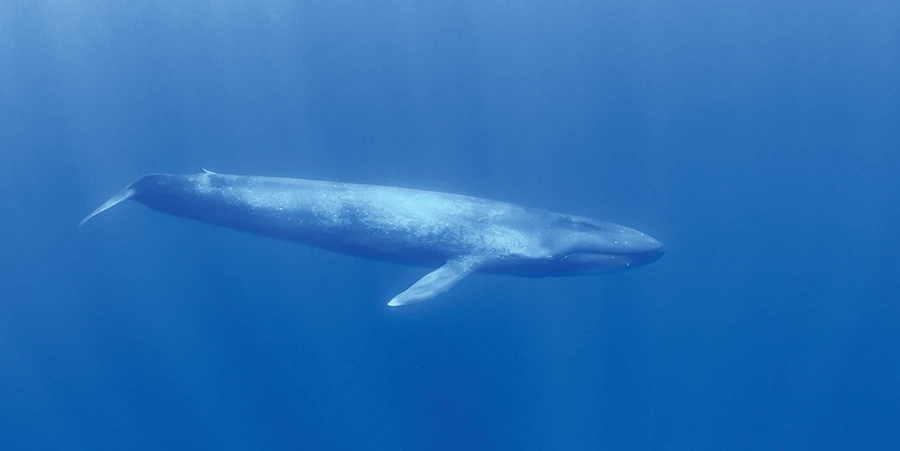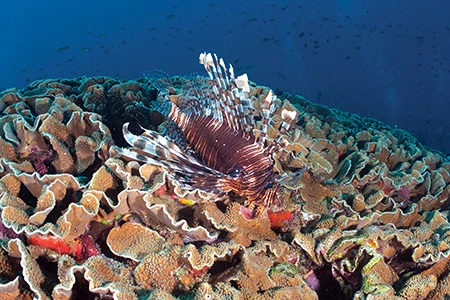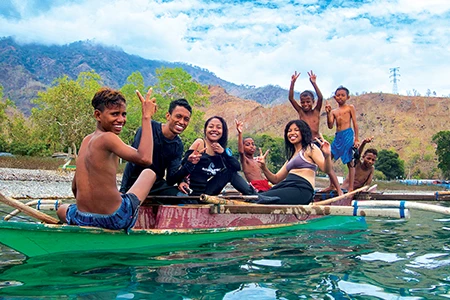Timor-Leste, or East Timor, is one of the world’s newest countries, having gained independence from Indonesia in 2002 after decades of conflict. While it has lacked visitors, it has so much unseen and unknown potential. With a current population of around 1.3 million, largely young people — the United Nations reports the median age is 21 — the possibilities are endless.
Pioneering dive shops opened their doors there in 2000, and the United Nations and similar organizations soon began to assist this new country in rebuilding itself. Some people saw the reef’s potential and wanted to explore it, and the rest is history.

Part of the Coral Triangle, Timor-Leste has some of the region’s most biodiverse reefs, teeming with healthy corals, reef fish, weird macro life, and occasionally dugongs. Spectacular dive sites are only 20 minutes to an hour’s drive from the capital city of Dili. Atauro Island, part of Timor-Leste, is another exciting destination just a short boat ride away. Diving in both areas offers a diverse range of sites that can suit most people’s interests.
Dive instructors Kate Barker and Ivan Samra opened Dreamers Dive Academy (DDA) in 2018 to help shape the local dive industry regarding safety, education, conservation, and incorporating the local people in the dive profession. One of their initial goals was to train the first Timorese dive instructor.
They worked closely with the Oceania regional office of Scuba Diving International (SDI) and in 2019 certified Melky, who joined the DDA staff. Despite all the challenges of COVID-19, DDA trained the first female Timorese dive instructor, Te Aquila, who became a dive professional in 2021. These two instructors enabled a movement to train more locals in snorkeling and diving with instructors of the same nationality and cultural background and using their own language.
No longer just for visitors, diving was now accessible to the Timorese. It can sometimes be hard to be motivated to protect something you do not love, and the ocean traditionally had not been at the center of Timorese culture. People were more focused on the mountains with farming and raising livestock rather than fishing. The locals who fished weren’t always concerned with the ocean any further than their livelihood. Many residents cannot swim and never considered putting their face in the water with a mask to see the reefs and fishes.


Melky and Te Aquila have provided an excellent foundation for forming relationships with Timorese youth, the national university, communities, and leaders in the areas with the most diving. They have allowed locals to see that the marine tourism industry isn’t just about foreigners, that protecting the ocean is possible, and that it’s essential for Timorese people to work in it, protect their resources, and promote its future. As more locals discover the ocean’s importance and beauty, they recognize their vital voice in how things are done in their nation’s waters.
DDA has been able to go beyond a traditional dive operation and increase local awareness of the value and delicate state of the country’s resources by empowering the local population. The Timorese youth’s access to their magical underwater world has inspired an authentic interest in protecting their environment through understanding and love.
They have also begun efforts to create a network of local Timorese divers to continue learning about the dive industry, share their experiences with diving and working, and discuss local environmental issues. The network will allow Timorese divers to take their dive expertise into the workplace and community. The hope is they will create a ripple effect and increase momentum and interest in diving as an option for locals to pursue recreationally and professionally.
The local dive industry took another step forward with an instructor trainer workshop in Timor-Leste that enabled locals to increase their dive knowledge and opportunities. The culmination of this effort, a partnership between DDA and SDI, has made it possible to run full instructor development courses and instructor examinations for and by locals, making the hope for more trained Timorese instructors a reality.
In other collaborations, Emergency Response Diving International (ERDI) came to Timor-Leste to train three new instructors, including Melky, for their public safety diving courses. This work creates more potential in the country for national organizations such as the marine police or navy teams to have first-response training.
Having Indigenous national representatives in areas such as Timor-Leste provides a cultural bridge, allowing for more in-country expertise that can be cultivated from within rather than outsourced.

Explore More
Learn more about Timor-Leste diving in these videos.
© Alert Diver – Q3 2024